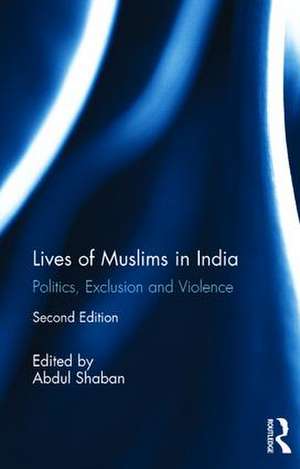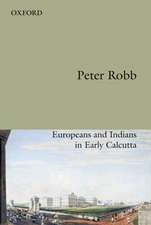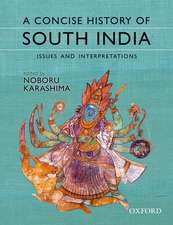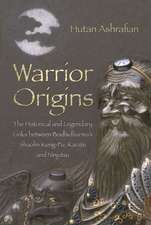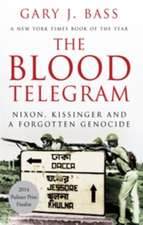Lives of Muslims in India: Politics, Exclusion and Violence
Editat de Abdul Shabanen Limba Engleză Hardback – 16 ian 2018
This second edition, with a new introduction, will be of great interest to scholars and researchers in sociology, politics, history, cultural studies, minority studies, Islamic studies, policy studies and development studies, as well as policymakers, civil society activists and those in media and journalism.
| Toate formatele și edițiile | Preț | Express |
|---|---|---|
| Paperback (2) | 433.26 lei 6-8 săpt. | |
| Taylor & Francis – 16 ian 2018 | 433.26 lei 6-8 săpt. | |
| Taylor & Francis – 21 ian 2016 | 449.41 lei 6-8 săpt. | |
| Hardback (2) | 1000.27 lei 6-8 săpt. | |
| Taylor & Francis – 16 ian 2018 | 1000.27 lei 6-8 săpt. | |
| Taylor & Francis – 6 mar 2012 | 1056.14 lei 6-8 săpt. |
Preț: 1000.27 lei
Preț vechi: 1219.84 lei
-18% Nou
Puncte Express: 1500
Preț estimativ în valută:
191.40€ • 200.37$ • 158.37£
191.40€ • 200.37$ • 158.37£
Carte tipărită la comandă
Livrare economică 05-19 aprilie
Preluare comenzi: 021 569.72.76
Specificații
ISBN-13: 9780815392972
ISBN-10: 0815392974
Pagini: 332
Ilustrații: Update of previous edition: Lives of Muslims in India ISBN 978-0-415-50851-3; 12 Line drawings, black and white; 13 Tables, black and white; 12 Illustrations, black and white
Dimensiuni: 138 x 216 x 19 mm
Greutate: 0.45 kg
Ediția:2nd edition
Editura: Taylor & Francis
Colecția Routledge India
Locul publicării:Oxford, United Kingdom
ISBN-10: 0815392974
Pagini: 332
Ilustrații: Update of previous edition: Lives of Muslims in India ISBN 978-0-415-50851-3; 12 Line drawings, black and white; 13 Tables, black and white; 12 Illustrations, black and white
Dimensiuni: 138 x 216 x 19 mm
Greutate: 0.45 kg
Ediția:2nd edition
Editura: Taylor & Francis
Colecția Routledge India
Locul publicării:Oxford, United Kingdom
Public țintă
PostgraduateCuprins
Acknowledgements. List of tables. List of figures. Introduction 1. Minority and Minorityism: The Challenge before Indian Muslims M. J. Akbar 2. The Muslim as Victim, The Muslim as Agent: On Islam as a Category of Analysis Markha Valenta 3. Locating Multiculturalism and Social Exclusion in the Liberal Democratic Framework Ranu Jain 4. Muslims and Politics of Exclusion Ram Puniyani 5. Indian Muslims: Political Leadership, Mobilization, and Violence Irfan Engineer 6. Precedents and Exceptions: BJP’s engagement with the Muslims Nistula Hebber 7. Structure of Violence and Muslims Taha Abdul Rauf 8. Hindu–Muslim Riots in India: A Demographic Perspective R. B. Bhagat 9. Police Conduct during Communal Riots: Evidence from 1992–93 Mumbai Riots and its Implications Jyoti Punwani 10. Ethnic Politics, Muslims and Space in Contemporary Mumbai Abdul Shaban 11. Social Exclusion and Muslims of Kolkata Sanjukta Sattar 12. Muslim Women and Law Reforms: Concerns and Initiatives of the Excluded within the Excluded Noorjehan Safia Niaz and J. S. Apte. About the Editor. Notes on Contributors. Index
Notă biografică
Abdul Shaban is Professor at the School of Development Studies and Deputy Director (Tuljapur Campus), Tata Institute of Social Sciences, Mumbai, India. He has published widely on Muslims in India, including in Mumbai: Political Economy of Crime and Space (2010); Muslims in Urban India: Development and Exclusion (2013); and Mega-urbanization in the Global South: Fast Cities and New Urban Utopias of the Postcolonial State (2012, co-editor). He has been member of the Study Group appointed by the Government of Maharashtra to assess the ‘Social, Economic and Educational Status of Muslims in Maharashtra’ (2012–13); the ‘Post-Sachar Evaluation Committee’ (2013–14) appointed by the Ministry of Minority Affairs, Government of India; and the Commission of Inquiry on Social, Economic and Educational Status of Muslims in Telangana (2015–present). He has also authored many reports for the Maharashtra State Minorities Commission, the Government of Maharashtra, the Government of India, the World Bank, and national and international corporate groups.
Recenzii
‘Lives of Muslims in India is an important book not only because it adds to the literature on Indian Muslims but also because it confronts head on many of the issues facing Indian Muslims. The immense importance of the Sachar report in this context also becomes evident.’
Vikhar Ahmed Sayeed, Frontline
‘It offers significantly new things to the readers. One hopes it would be appreciated not only in academic as well as popular circles but also in policy domain and state executive.’
K.M. Ziyauddin, Journal of Exclusion Studies
‘This is a stimulating, interesting, thought-provoking and thoroughly absorbing collection that will be of value for academics, students and researchers interested in political sociology, minority studies, Asian politics, cultural and religious studies, anthropology and social sciences. The series of articles that individually represent important contributions to the debate about the lives of Muslims in India and present a series of interesting observations, comparisons, interpretations and questions make it a book worth reading.’
Fayaz Ahmad Bhat, Islam and Muslim Societies, A Social Science Journal
‘This is a rare book bringing together thought provoking, well researched and articulated writings from a range of authors on issues relating to Muslims of India. Essays explore the impact of violence on the structure of exclusion and point to the changing domains of national integration. The analytical richness describing the life situation of Muslims in major cities, regions and at the national level within the multidisciplinary perspective, broaden our understanding of the social and developmental institutions, their formations and processes. Special emphasis on the issues relating to Muslim women are praiseworthy.’
Abusaleh Shariff, US-India Policy Institute, Washington DC, USA and former Member Secretary, the Prime Minister’s High Level Committee (Sachar Committee), Government of India
Vikhar Ahmed Sayeed, Frontline
‘It offers significantly new things to the readers. One hopes it would be appreciated not only in academic as well as popular circles but also in policy domain and state executive.’
K.M. Ziyauddin, Journal of Exclusion Studies
‘This is a stimulating, interesting, thought-provoking and thoroughly absorbing collection that will be of value for academics, students and researchers interested in political sociology, minority studies, Asian politics, cultural and religious studies, anthropology and social sciences. The series of articles that individually represent important contributions to the debate about the lives of Muslims in India and present a series of interesting observations, comparisons, interpretations and questions make it a book worth reading.’
Fayaz Ahmad Bhat, Islam and Muslim Societies, A Social Science Journal
‘This is a rare book bringing together thought provoking, well researched and articulated writings from a range of authors on issues relating to Muslims of India. Essays explore the impact of violence on the structure of exclusion and point to the changing domains of national integration. The analytical richness describing the life situation of Muslims in major cities, regions and at the national level within the multidisciplinary perspective, broaden our understanding of the social and developmental institutions, their formations and processes. Special emphasis on the issues relating to Muslim women are praiseworthy.’
Abusaleh Shariff, US-India Policy Institute, Washington DC, USA and former Member Secretary, the Prime Minister’s High Level Committee (Sachar Committee), Government of India
Descriere
This book focuses on the exclusionary practices against Indian Muslims and discusses the politics of vote bank and appeasement, marginalisation of women, Muslim Personal Law, development, integration, exclusion, violence, identity, minority, multiculturalism and nationalism.
